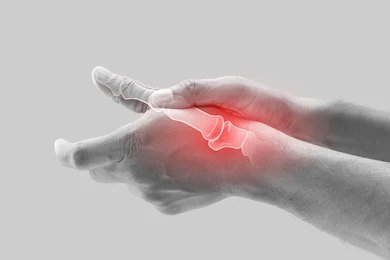
1 Why is carbohydrate intake important for diabetics?
Carbohydrates, protein and fats are the macronutrients that provide the body with energy.
Of these three nutrients, carbohydrates have the largest effect on blood sugar to date. This is because it breaks down into sugar or glucose and is absorbed into the bloodstream.
Carbohydrates include starch, sugar, and fiber. However, fiber is not digested and absorbed by the body in the same way that other carbohydrates are digested, so it does not raise blood sugar.
By subtracting the fiber from the total carbohydrates in the food from the carbohydrates, the digestible or “net” is obtained.
For example, if a cup of vegetables contains 10 grams of carbohydrates and 4 grams of fiber, then the net carbs are 6 grams.
When people with diabetes consume too many carbohydrates at one time, blood sugar levels can rise to dangerously high levels.
Over time, these elevated levels can damage the body’s nerves and blood vessels, potentially setting the stage for heart disease, kidney disease and other serious health conditions.
2 Sugar-sweetened drinks
Sugary drinks are the worst drink option for a diabetic. They are very rich in carbohydrates, with each 12-ounce (354 ml) can of soda containing 38 grams.
And the same amount of sweetened iced tea and lemon juice contains 36 grams of carbs, all of which are sugar.
In addition, it is packed with fructose, which has been strongly linked to insulin resistance and diabetes. Studies show that drinking sugar-sweetened beverages may increase your risk of developing diabetes-related diseases such as fatty liver.
In addition, high fructose levels in sugary drinks may lead to metabolic changes that boost belly fat and potential cholesterol and triglyceride levels.
3 Trans fats
Industrial trans fats are very unhealthy. They are those that are made by adding hydrogen to unsaturated fatty acids to make their consistency more cohesive.
And trans fats are found in margarine, peanut butter, and cream. Food manufacturers also often add them to biscuits, cakes and other baked goods to help extend storage times.
Although trans fats do not directly raise blood sugar levels, they have been linked to increased inflammation, insulin resistance and abdominal fat, as well as lowered HDL cholesterol levels and poor arterial impairment.
These effects are of particular concern to diabetics, as they are more likely to develop heart disease.
4 White bread, pasta, and rice
White bread, rice, and pasta are processed and high-carb foods.
Eating bread and other foods prepared with refined flour has been shown to significantly increase blood sugar levels in people with type 1 and 2 diabetes.
This response is not exclusive to wheat products. One study showed that gluten-free pasta also raised blood sugar, with rice-based varieties having the most effect.
These processed foods contain less fiber, which helps slow the absorption of sugar into the bloodstream.
5 Fruit-flavored yogurt
Typically flavored yogurts are made from skimmed or low-fat milk and loaded with carbohydrates and sugar.
One cup (245 grams) of fruit-flavored yogurt may contain 47 grams of sugar, which means that about 81% of its calories come from sugar.
And many people consider frozen yogurt a healthy alternative to ice cream. However, it can contain so much sugar that it may be more than ice cream.
Alternatively, choose full-fat yogurt that does not contain sugar, and it may be beneficial for appetite, weight control and gut health.
6 Sweetened breakfast cereals
For people with diabetes, taking a pill is one of the worst ways to start the day. Despite the health claims it’s making, most grains are highly processed and contain more carbohydrates than people realize.
In addition to providing very little protein, a nutrient that can help you feel full and full while keeping blood sugar levels stable throughout the day, “healthy” breakfast cereals are not good options for diabetics.
For example, just half a cup (55 grams) of granola beans contains 30 grams of digestible carbohydrates, and grapes with grapes and nuts contain 41 grams. While both provide only 7 grams of protein per serving.
7 Flavored coffee drinks
Coffee is linked to several health benefits, including a reduced risk of developing diabetes.
However, flavored coffee drinks should be considered a liquid dessert, not a healthy drink. Studies have shown that the brain does not process liquid and solid foods the same way.
And when you drink calories, it doesn’t compensate for eating less food later, which can lead to weight gain.
Also, flavored coffee drinks are packed with carbohydrates. Even the “light” varieties contain enough carbohydrates to significantly raise blood sugar levels.





